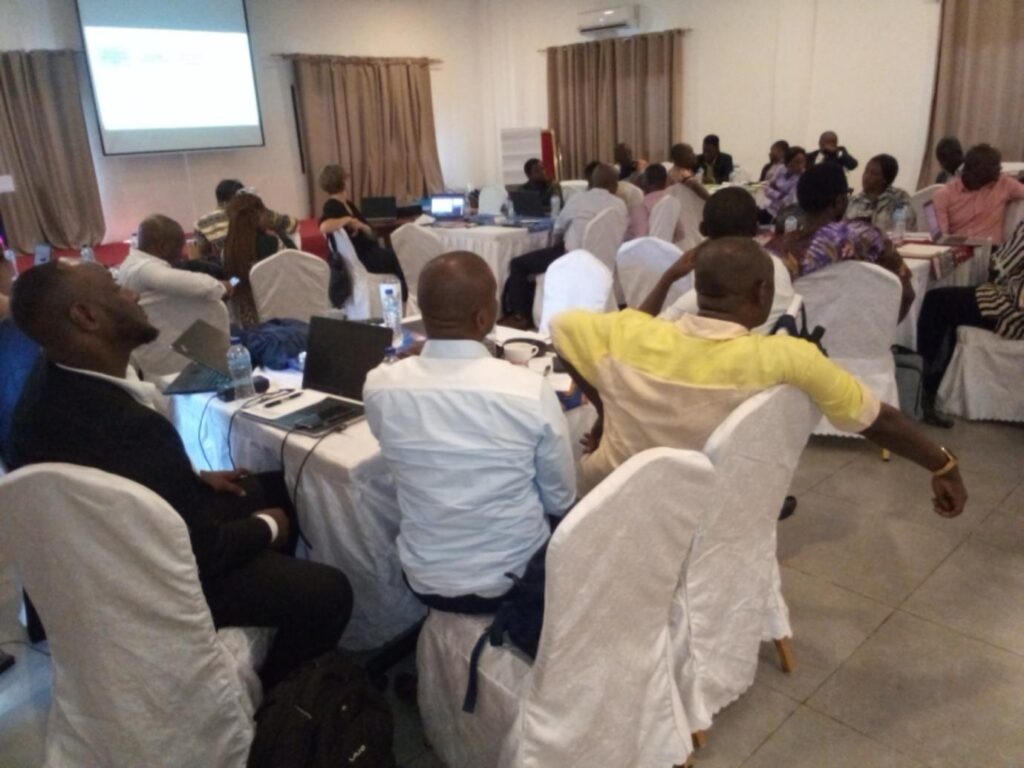The Food and Agriculture Organization (FAO) of the United Nations on Tuesday 5th December 2023, officially launched a day’s inception workshop of the project titled ‘Promoting Inclusivity for Improved Local Tenure Governance’, funded by the Federal Ministry of Food and Agriculture of Germany at the Sierra Palms Hotel, Lumley Beach Road in Freetown.
The 60 participants included Paramount Chiefs, Civil Society Organizations like NAMATI, Green Scenery, Solidaridad, Government Ministries, Departments and Agencies and the media.
In the past ten years, the Government of Sierra Leone has made considerable progress in the land sector, using the Voluntary Guidelines on the Responsible Governance of Tenure (VGGT) principles in different reform processes.
Starting from the adaptation of the National Land Policy in 2015, a progressive Customary Land Rights Act and a Land Commission Act have been promulgated by the Parliament in August 2022, as well as the Gender Equality and Women’s Empowerment Act (GEWE) signed by the President in January 2023.
All these instruments represent a milestone in the advancement of securing tenure rights for the most vulnerable and a significant step towards the realization of women’s land rights in the law. At the same time, the implementation of such laws requires the definition of clear road maps and implementation plans.
The project strives to improve local land governance by reinforcing and capacitating local institutions, which play a crucial role in the implementation of the legislative framework, paying attention to the role of women and youths, promoting multi-stakeholders local dialogue on responsible governance, addressing in particular, local government institutions, but also traditional leaders, bringing closer to the rural communities and more transparent the changes in the act, as a result of new policies and laws.
Furthermore, the project aims to increase the capacity of national actors to define land reform targets, and indicators and agree on long monitoring mechanisms, in line with VGGT principles, with the ultimate objective of increasing accountability.
FAO and its partner, TMG Research, presented a new tool to promote the monitoring of land governance, the use of which will support the Government of Sierra Leone, the Ministry of Lands, Housing and Country Planning, Civil Society Organizations, landowners and users to better assess land governance using the VGGT principles.
In his welcome statement, the Deputy FAO Representative disclosed that since 2014, FAO has been supporting the Government of Sierra Leone, has created a solid basis for new investments, and observed that land is not only a commodity, but carries traditional, cultural and religious sentiments.
Dr Alphajoh Charm, the Lands Project Coordinator in the Ministry of Lands, underscored that the FAO is a reliable partner to the Government of Sierra Leone, especially to the Ministry of Lands, and disclosed that they have received 21 million dollars from the World Bank for the project.
Francesca Romano from FAO, Rome, Italy, revealed that since 2014, FAO has been on capacity building that the Multi-Stakeholders Lands Steering Committee is functional and recognised by the international community, and that FAO has mapped some community lands. They would be looking at monitoring and assessment. She then set a baseline on work done so far with a human rights-based approach.
She also disclosed that Sierra Leone is one of the best examples of collaboration on the VGGT, citing the recent African Land Policy conference in Addis Ababa, Ethiopia.
Francesca Romano from FAO, Rome, Italy and Isle Pelkmann from TMU Research Berlin, Germany facilitated the engagement.
Some of the challenges highlighted by participants included that land cases are the highest in the courts and take long periods before judgments are delivered, that there are several documentations for a single piece of land, that efforts have not been made to review the colonial land system, that there are several instances of government violating the rights of landowners, citing the nonpayment of compensation to landowners along the Hill Side Bye Pass and Wilkinson Roads respectively, and that a lot still needs to be done to sanitise the land system in the country.
A question and answer session and the Zoom presentation of the case study of the indigenous people claiming their land and other resources in Kenya, using the African Charter, formed the high point of the interactive event.
